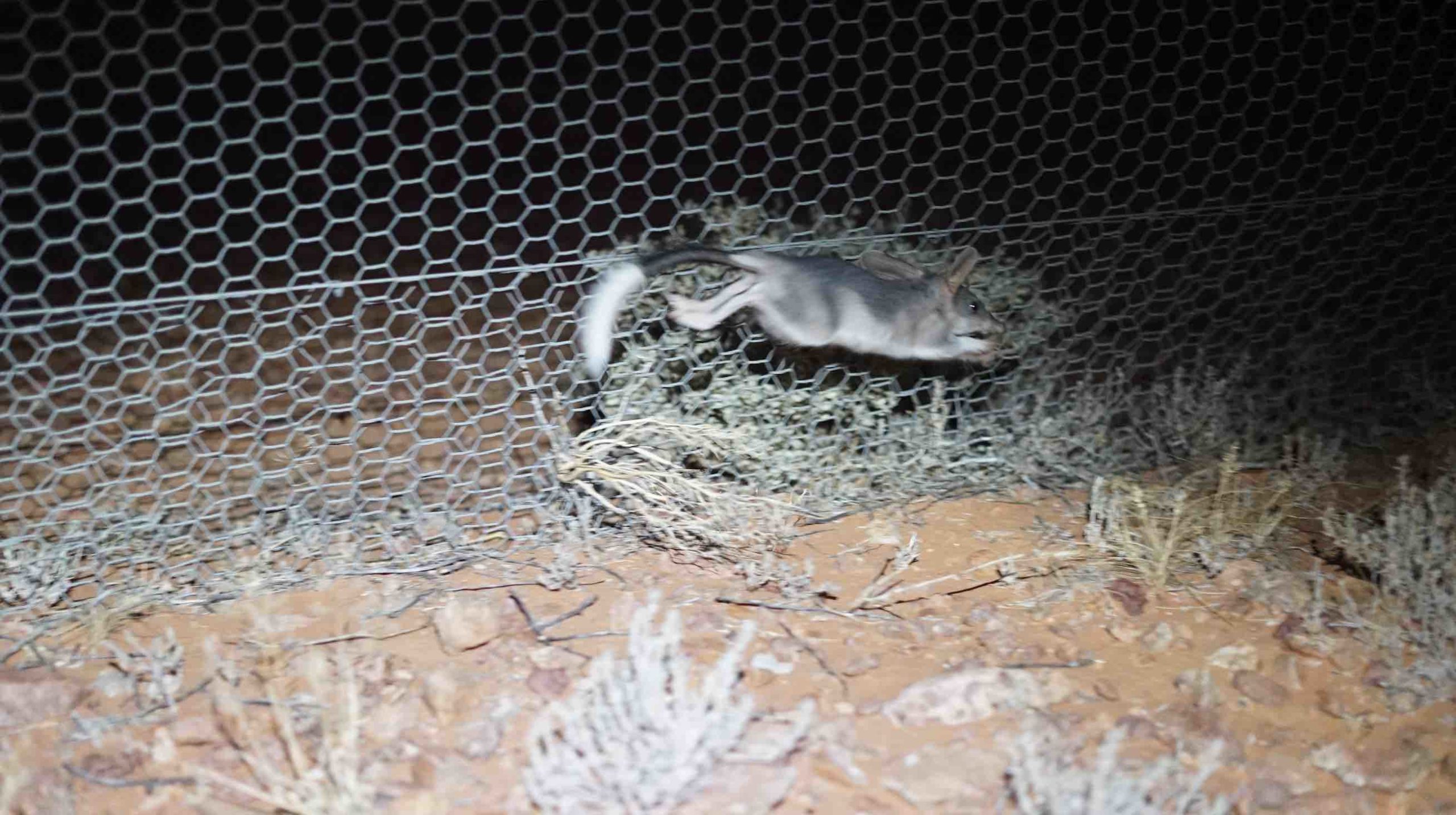South Australian conservation group Arid Recovery has this week highlighted the wide-ranging benefits of electric vehicles for wildlife conservation, after it began trialling a customised EV in its everyday duties.
Arid Recovery, which runs a 123-square-kilometre wildlife reserve in the arid north of South Australia, was interested in trialling electric vehicles and commissioned an EV mechanic to convert an old Suzuki. The resulting EVNorth had its engine and fuel tank removed and replaced with an electric motor and Nissan LEAF batteries.
While the converted Suzuki only has an electric range of around 70-kilometres, the organisation say it is nevertheless “adequate for our needs at present” and is “good for fence checks, spotlight surveys, and odd jobs.”
In a blog post on the organisation’s website, Arid Recovery researchers Hugh McGregor and Kath Tuft highlighted two of the most common benefits people experience when switching to EVs, explaining that the converted EVNorth “will also be much cheaper to run, with free power from solar panels and fewer parts requiring maintenance.”
Beyond the common benefits of EVs, however, the team at Arid Recovery are also hoping that the quiet running of its new EVNorth will help them in surveying wildlife and hunting cats.
“In the desert, you can sometimes hear an approaching diesel car from over 2 km away,” explained McGregor and Tuft. “The EV Suzuki however, cannot be heard until it is around 200 m away.
“Many animals will likely move away on hearing a vehicle approaching, especially species more likely to be wary of humans. In particular, we suspect that our loud diesel cars result in lower detection rates of bilbies and feral cats. We will be conducting research on this over the coming months.”

Arid Recovery hopes that electric vehicles like their converted EVNorth will become valuable tools in their work, not only helping to reduce greenhouse gas emissions but also helping to reduce disturbance to native wildlife.
Interestingly, while the team at Arid Recovery are hopeful, they also expect that no available electric vehicle “could handle both the long distances and difficult off-roading that is often required in remote Australia. Longer range models will eventually come on the market, but they are still a little way off and considerably more expensive.”
Relying on available EVs in Australia, Arid Recovery are probably right in saying that there is not yet an EV option that meets all their needs – especially one which would be affordable for a non-profit conservation organisation such as theirs.
Doubly difficult is the problems caused by Australia’s one-step-forward-two-steps-back approach to electric vehicles, which puts the country quite low on EV manufacturers priorities.
However, with electric models on the horizon such as the Rivian ute – which recently arrived on Aussie shores for testing amidst reportedly “intense” interest – the highly anticipated Ford F-150 Lightning, and the upcoming electric Chevrolet Silverado, and hopefully all coming to Australia, maybe Arid Recovery will have their pick of some great options.
Maybe even hydrogen fuel cell electric vehicles (FCEVs) might be convenient – such as the Australian-developed Warrego Ute which is due to be launched in November – though, nowhere near as convenient as being able to charge from solar panels out in the middle of Australia.
What is most interesting about Arid Recovery’s experiences, however, is the continued discovery of unintended benefits from electric vehicles.
We saw a similar situation happen in mid-2020 when the Gloucestershire Constabulary in the South West of England reported that they had been able to use their fleet of electric police vehicles in a 5-night anti-poaching operation.
Benefiting in much the same way as Arid Recovery did, the Gloucestershire Constabulary was able to rely on the police department’s new unmarked electric vehicles so as to quietly stealth around the countryside listening for the tell-tale gunshots of poachers.
Last week, 5 nights of anti poaching ops. Unmarked electric cars patrolling and listening for gunshots, utilising their quiet running. Officers waiting in the woods with night vision, thermal spotters & thermal drone. No one seen but the bar is set high for any future poachers. pic.twitter.com/RxYGnE5MUO
— Rural Crime Team – Gloucestershire Constabulary (@GlosPol_Rural) April 27, 2020
Joshua S. Hill is a Melbourne-based journalist who has been writing about climate change, clean technology, and electric vehicles for over 15 years. He has been reporting on electric vehicles and clean technologies for Renew Economy and The Driven since 2012. His preferred mode of transport is his feet.

